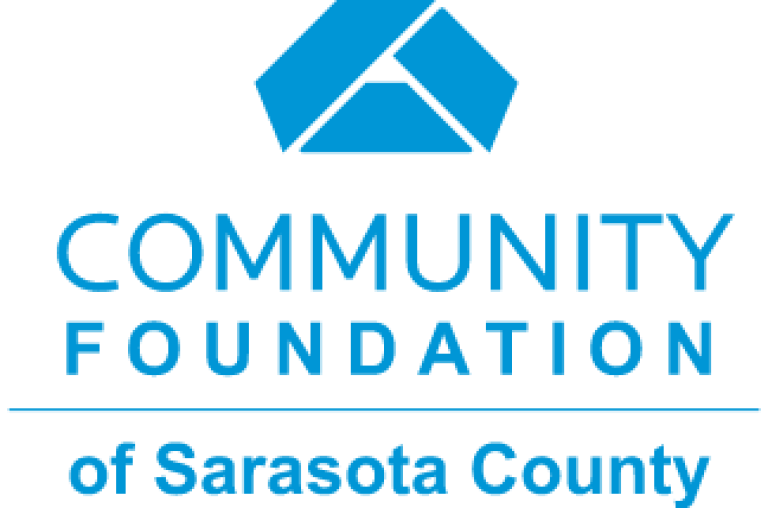October 13, 2023
Community Foundation of Sarasota County Awards nearly $625,000 for Hurricane Recovery Efforts
Categories: Stories of Impact, Suncoast Disaster Recovery Fund,
More than half of Suncoast Disaster Recovery Funding has been committed through grants and future funding
SARASOTA, FL – At the one-year anniversary of Hurricane Ian, the Community Foundation of Sarasota County awarded a second round of grants totaling $625,000 to nonprofits to address ongoing impacts of the catastrophic storm.
Combined with the nearly $1 million in grants awarded in June, and $720,000 reserved for future funding, more than half of the $5 million raised through the Suncoast Disaster Recovery Fund in the storm’s immediate aftermath has been deployed or committed to serving the region in ongoing recovery efforts.
Programs supported through this grant include hurricane survivor advocacy and case management, youth services, home repairs, and delivery of essential assets, such as appliances and furniture, to households.
Grants were announced for nonprofit organizations undertaking the recovery of communities in Sarasota, Manatee, DeSoto, and Charlotte counties with emphasis placed on the areas hardest hit by the storm, namely south Sarasota County, Charlotte County and DeSoto County.
This grant cycle follows an initial round of Suncoast Disaster Recovery Fund grants that were awarded in June.
Funding supports organizations in their efforts to bring stability to people’s lives by addressing needs that emerged as most critical through listening sessions and expert consultation. The list of priorities that shape this best-practices approach includes areas of existing challenges that were exacerbated by Hurricane Ian. Here’s what was funded:
Services to Children, Youth, and other Dependent People
A major focus of recovery is children’s welfare. Many services that families and children rely upon to support wellbeing have been disrupted because of Ian-related damage to structures. Disruption in these services and programs not only harms children, but also poses instabilities in the families that depend on them.
- Quality youth programs like the YMCA’s SKY Academy in Englewood and the Boys and Girls Clubs of Charlotte County offer lifelines to the youth and families they serve. Both organizations received grants to assist in continuation of services, with funding also supporting scholarships for students at SKY Academy.
Home Repair and Housing Needs
The scale of damage to people’s residences brought on by Hurricane Ian was enormous—according to CoStar, impacts from Ian destroyed 5,000 homes and severely damaged another 30,000.
- Grants were awarded to two organizations to help rebuild damaged homes: Rebuilding Together Tampa Bay, which restores homes and educates homeowners on ways to prepare for future storms to be more resilient; and Habitat for Humanity Sarasota, Inc., with a focus on repairing roofs damaged by the storm. In addition to safeguarding homes from water damage, roof repairs also allow low-income homeowners to secure new insurance or maintain current insurance.
Survivor Advocacy
Many who have sustained enormous damage to their property still are navigating insurance claims. Going through the process of reimbursement without legal support can lead to unfair or undesirable outcomes. For those who endured Hurricane Ian with virtually nothing left to lose, the storm shook an already unsteady foundation, placing them farther away from achieving stability.
- Funding was awarded to Florida Rural Legal Services, Inc., to provide free civil legal assistance to vulnerable people to people living in Charlotte or DeSoto county, including low-income families, the elderly, and migrant workers. To assist low-income families and individuals living in Sarasota and Manatee counties with recovering their losses and understanding their legal rights and responsibilities, funding was awarded to Legal Aid of Manasota.
- Hurricane Ian increased the number of people in need of social services, the uptick creating overwhelm at human service agencies. A grant was awarded to Charlotte County Homeless Coalition to support case management for those affected by Hurricane Ian.
Long Term Recovery Group Support
Long term recovery groups (LTRG) are cooperative bodies of representatives from many aspects of a community, including faith-based, government, business and nonprofit entities. Their goal is to provide coordinated service that allows everyone in the community to recover. Activities include overseeing construction, spiritual recovery, coordination of volunteers, government, and more.
- Funding supported two nonprofit distributors of essential goods and supplies that will work with local LTRGs to deploy essential goods.
Restore Global, which works with a network of nonprofits to provide non-food items, like appliances, clothing, and furniture, was awarded funding to activate a warehouse in South Sarasota. Good360, which works with for-profit manufacturers to distribute new overstock items to low-income or otherwise disadvantaged people, also earned a grant.
Future Funding
Additional grant cycles will be announced to continue to support long-term recovery efforts, which are expected to evolve over time, and differently in each community. Fund updates, including stories of those helped through this important fund, will be available at www.cfsarasota.org
The Suncoast Disaster Recovery Fund was activated in the days just before Ian made landfall at the end of September 2022 to be prepared to later address long term recovery for problems that persist after structure repairs and clean-up conclude. It was created in partnership with The Patterson Foundation, which seeded the fund with a $500,000 and offered matching gifts up to $750,000, which was quickly fulfilled and inspired other matching gifts. The fund’s overall purpose is to allow the community to heal holistically and rebuild in ways that increase the resiliency of our area.
Unlike relief, which is immediate reparation of damage to get society moving again, recovery focuses on the long view and helping people restore their lives on several fronts—economically, emotionally, and spiritually. To determine funding priorities for the nearly $5 million raised, a task force was convened that included Community Foundation staff and board members, along with key stakeholders in hard-hit communities. Through several listening sessions, the task force developed the scope of funding priorities.
